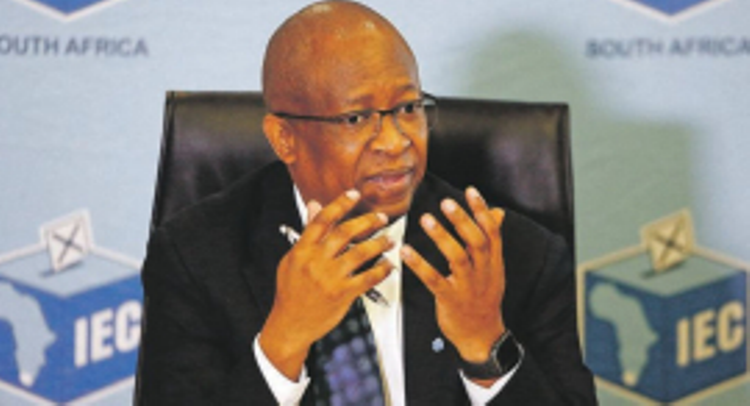IEC Prepares for 2026 Local Govt Elections as Ward Delimitation Nears End
Mamabolo explained that, in line with the Constitution, the term of a municipal council is five years, after which elections must be held no later than 90 days following the expiration of that term.

- Country:
- South Africa
The Electoral Commission of South Africa (IEC) has begun preparations for the 2026 Local Government Elections (LGE), with formal consultations already underway with the Minister of Cooperative Governance and Traditional Affairs (CoGTA). The announcement was made during a media briefing on Tuesday by Chief Electoral Officer Sy Mamabolo, who outlined the roadmap leading up to the polls.
Timelines for the 2026 Local Elections
Mamabolo explained that, in line with the Constitution, the term of a municipal council is five years, after which elections must be held no later than 90 days following the expiration of that term. The current municipal councils were elected on 1 November 2021, meaning their term will expire on 2 November 2026.
“This means that the general elections of municipal councils fall due between 2 November 2026 and the end of January 2027. The authority to set a date and call an election lies with the Minister of Cooperative Governance and Traditional Affairs following consultation with the Commission,” he said.
Consultations between the Commission and CoGTA are ongoing, but the election date has not yet been formally declared.
The Role of the Municipal Demarcation Board
Central to the preparations is the work of the Municipal Demarcation Board (MDB), which defines municipal and ward boundaries – the political geography that determines electoral representation.
Mamabolo noted that the MDB is concluding its process of ward delimitation, which is essential for determining the constituencies in which councillors are elected. “The MDB will hand over final ward boundaries to the Commission at the end of October 2025,” he said.
However, there will be a residual of 18 municipalities where final ward boundaries will be submitted later, due to pending reviews of external municipal borders. Discussions are ongoing between the IEC and MDB to determine timelines for these outstanding cases.
Once the boundaries are handed over, the IEC will conduct a comprehensive review of its voting districts to ensure they align with the updated wards, paving the way for voter registration campaigns and logistical preparations for the 2026/27 elections.
Building on the 2024 Elections
The briefing also reflected on lessons learned from the 2024 National and Provincial Elections, which the IEC said met constitutional, legal, and international standards of freeness and fairness.
In its elections report, tabled before the National Assembly in July, the IEC highlighted that South Africa now has 27.78 million registered voters — the highest number since the introduction of the national voters’ roll in 1999.
The 2024 elections were not without challenges, however. The Commission faced 88 legal cases contesting various aspects of the electoral process. Mamabolo confirmed that the IEC prevailed in all but one case, which concerned the establishment of special voting stations outside South Africa’s official foreign missions. That matter is now pending before the Supreme Court of Appeal.
Despite the disputes, Parliament’s Portfolio Committee on Home Affairs commended the Commission for ensuring the elections were free, fair, and credible, while also acknowledging areas where improvements could be made in the future.
What Lies Ahead
The IEC’s next steps will focus on:
-
Finalising ward boundaries in collaboration with the MDB.
-
Aligning voting districts with the new ward configurations.
-
Rolling out voter registration campaigns ahead of the 2026 LGE.
-
Strengthening electoral systems to anticipate and resolve litigation challenges.
Mamabolo stressed that the Commission remains committed to transparency and operational readiness. “We are on course to deliver the 2026 Local Government Elections within the constitutional timeframe,” he assured.
The 2026 LGE will serve as a major test of local democracy, especially as municipalities continue to face governance, financial, and service delivery challenges. The outcome will determine not only the political landscape at the grassroots level but also influence national politics in the run-up to future national and provincial contests.










